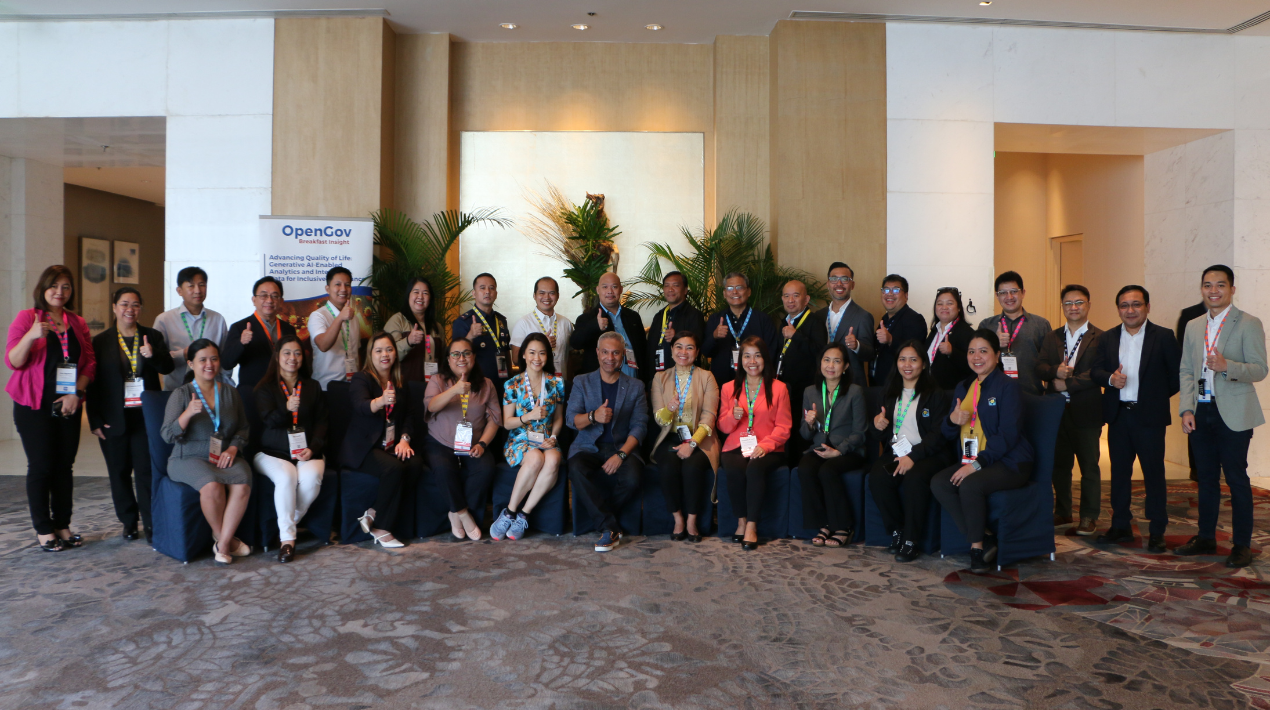
As per the Philippine Statistics Authority (PSA), the digital economy of the country saw substantial growth, reaching around US$36.5 billion in 2022, constituting 9.4% of the Gross Domestic Product (GDP). This marked an 11% rise from the approximately US$33 billion recorded in 2021, encompassing digital transactions across digital-enabling infrastructure, e-commerce, and digital media/content.
 The digital-enabling infrastructure emerged as the largest contributor, contributing around US$28 billion or 77.2% of the total. This amount showed a 7.5% increase compared to its 2021 figure of US$26 billion, with telecommunication services and professional and business services being the main contributors.
The digital-enabling infrastructure emerged as the largest contributor, contributing around US$28 billion or 77.2% of the total. This amount showed a 7.5% increase compared to its 2021 figure of US$26 billion, with telecommunication services and professional and business services being the main contributors.
Against this backdrop, during the second State of the Nation Address (SONA), all government agencies received directives to digitise essential public services as outlined in the Philippine Development Plan (PDP) 2023-2028, which underscores digital transformation as a pivotal theme.
The Philippines has been advancing efforts to improve public service delivery, decision-making, and governance within its government framework. Emphasising efficient data integration among various entities such as government agencies, non-governmental organisations, and private sector partners, the government aims to enhance resource allocation, streamline operations, and attain a comprehensive understanding of societal needs.
Transforming raw data into actionable insights is fundamental in the realm of public services, serving as the foundation for responsible governance centred on citizens’ requirements. However, governmental data, with its vast volume, intricate structure, and diverse formats across sectors such as social services, education, healthcare, and infrastructure, presents challenges for seamless integration and comprehensive analysis.
Balancing the imperative for data accessibility with privacy concerns and sensitivity adds complexity to managing and processing information within governmental systems. This complexity calls for additional layers of security, specialised handling protocols, and stringent measures to safeguard data integrity.
The integration of Generative AI with data integration holds significant potential for governments. By leveraging Generative AI technologies, governments can streamline data integration processes, enabling comprehensive analysis and the acquisition of diverse datasets from multiple departments and agencies. This fusion can help address complex problems, enhance decision-making, and improve public service delivery.
The Philippine government has an opportunity to use data integration to enhance accountability, transparency, and citizen involvement. Embracing advanced technologies like Generative AI and cloud-based analytics enables real-time assessment, automated data processing, and extraction of valuable insights, empowering the government to make informed decisions based on timely and accurate information.
 Cloud data integration and analytics offer an innovative approach to managing and deriving value from large databases. This approach, facilitated by cloud-based platforms and services, overcomes the limitations of traditional infrastructure and allows for the efficient merging of data from diverse sources, enabling more efficient and flexible operations.
Cloud data integration and analytics offer an innovative approach to managing and deriving value from large databases. This approach, facilitated by cloud-based platforms and services, overcomes the limitations of traditional infrastructure and allows for the efficient merging of data from diverse sources, enabling more efficient and flexible operations.
Cloud analytics empowers businesses to extract valuable insights from their data reservoirs. By using advanced analytics tools and machine learning techniques in the cloud, businesses can uncover patterns, trends, and correlations, facilitating informed decision-making and ensuring timely access to actionable insights.
Integrating real-time, Gen AI-driven, collaborative, and actionable data and analytics represents an innovative approach to information processing and decision-making. Real-time data processing provides rapid insights into evolving situations, while AI enhances analysis, revealing intricate patterns and trends that conventional techniques might miss.
The primary objective is to swiftly transform data into actionable and insightful information, empowering organisations to respond to emerging opportunities or challenges promptly. This comprehensive approach to data and analytics signifies a revolutionary shift toward agility, innovation, and informed decision-making in the current fast-paced, data-centric landscape.
The OpenGov Breakfast Insight event on 4 April 2024, at Shangri-La the Fort Manila, explored the crucial role of advanced data integration and analysis technologies in revolutionising governance and public service in the Philippines. This gathering underscores the importance of embracing innovative solutions to meet the evolving needs of society and ensure efficient, transparent, and responsive governance.
Opening Remarks

Mohit Sagar, CEO and Editor-in-Chief at OpenGov Asia, asserts that analytics and data integration have become essential components of modern governance. They enable government agencies to observe trends, patterns, and correlations in data, optimising resource utilisation, streamlining processes, and minimising unnecessary costs. This enhances governance efficiency, ensuring the efficient allocation of public resources.
In the Philippines, there has been a concerted effort to enhance data governance and foster a culture of open data. Notably, the country boasts an OpenStat portal, initiated by the Philippine Statistical Authority (PSA), functioning as the central repository for all public intent data of the government.
With over 3,000 databases covering demographic, social, economic, and environmental statistics from various government agencies, this platform signifies a noteworthy shift towards prioritising data analytics as the cornerstone of informed decision-making and evidence-based policymaking nationwide.
Advancements in collection, storage and analytics empower government institutions to extract valuable insights and make informed decisions based on comprehensive data analysis.
“Data integration’s real-time monitoring and evaluation capabilities play a pivotal role in enhancing service delivery, as it not only allows for immediate insights into operations but also enables the identification of future challenges through predictive analysis,” Mohit explains. “Moreover, these capabilities foster cross-agency collaboration by providing a unified view of data across different departments or agencies.”
The transformative impact of digital technologies in modern life is exemplified by Artificial Intelligence (AI), which revolutionises analytics and data integration. This fundamentally alters how organisations extract insights and manage information in today’s digital age.
AI’s role in enhancing analytics is particularly notable, as it can identify complex patterns and predict trends in large datasets using advanced techniques and machine learning algorithms. This capability enables organisations to make better-informed decisions based on data-driven insights, ultimately driving efficiency and innovation across various sectors and industries.
Emphasising the significance of leveraging multi-cloud data, Mohit believes it’s crucial to recognise how multi-cloud data integration and analytics offer a versatile solution for overseeing and analysing data across diverse cloud platforms. This approach enables the seamless connection, synchronisation and analysis of data from different cloud environments, fostering the generation of vital insights. Utilising advanced technologies and tools further streamlines data integration across multiple clouds, culminating in the establishment of a cohesive data landscape.
Cloud analytics enables organisations to gain valuable insights from their data repositories, identifying patterns, trends, and correlations in the cloud using advanced analytics tools and machine learning approaches. This improves the speed and efficiency of data analysis and allows for real-time processing, ensuring rapid access to actionable insights.
Data and analytics integration are significantly changing public service delivery, ushering in a new era of efficiency and effectiveness. By aggregating information from multiple sources, public sector organisations can provide a comprehensive view, while analytics provides actionable insights to decision-makers, optimising resource allocation and improving service delivery.
Moreover, employing data-driven techniques plays a pivotal role in detecting and preventing fraud, substantially enhancing transparency and accountability in governance by providing insights into patterns of fraudulent activities, enabling proactive measures to mitigate risks and uphold integrity in public institutions.
“The combination of analytics and data integration is not just beneficial but essential for modern efficiency, transparency and responsive governance,” Mohit emphasised. “This approach is foundational in shaping the future of public service delivery.”
Welcome Address

Armstrong Mejilla, the Senior Director of APJ Presales at Qlik, delved into the transformative potential of Generative Artificial Intelligence (Gen-AI) for organisations. Drawing from his extensive experience he offered a comprehensive understanding of how Gen-AI’s cultivated capabilities could profoundly enhance the company’s product portfolio, streamline operational efficiencies, and spearhead a new wave of innovation.
Armstrong emphasised the intrinsic power of Gen-AI to generate new content, ideas, and data interpretations from vast training datasets, highlighting its potential to revolutionise any organisation’s problem-solving, creativity, and solution development approach. He believes that this transformative technology positions Gen-AI not merely as a technological tool, but as a pivotal force capable of driving innovation and reshaping organisational strategies.
Gen-AI has the capability to create new content and data patterns that could transform problem-solving and the development of new solutions, particularly in data analysis and integration, by efficiently generating predictive models and insightful reports.
Moreover, the transformative potential of Gen-AI extends to customising customer experiences to an unprecedented degree. Leveraging advanced predictive capabilities, Gen-AI can anticipate and adapt to individual needs, thereby enhancing customer satisfaction and fostering long-term loyalty.
This ability to tailor products, services, and interactions at a granular level based on nuanced customer preferences is poised to reshape how organisations engage with their clientele, setting a new standard for personalised customer experiences in the digital era.
However, amidst the discussion surrounding Gen-AI’s capabilities, the importance of organisational preparedness for adopting this technology, in terms of data, cannot be overstated. This emphasis on data integrity and reliability serves as a critical reminder of the foundational role of data in realising the full potential of AI technologies.
“To harness AI’s full potential, it’s essential to recognise that well-organised data serves as the cornerstone for AI operations,” he explains. “By ensuring data is clean, accurate, and well-structured, AI systems can effectively learn, predict, or make decisions, unlocking the transformative benefits of AI.”
Armstrong clarified that harnessing AI extends beyond generating insights; it entails integrating these insights into daily operations to drive meaningful actions. This integration can automate supply chain responses, tailor customer interactions, and optimise resources in real-time, embedding AI deeply into the organisational fabric for data-driven and dynamic decision-making.
Achieving these goals requires a multi-disciplinary approach involving data science, systems integration, and change management to adapt to new operational methodologies. To refine AI models and data strategies effectively, a continuous loop of feedback and improvement is essential. This process aims to establish a synergistic ecosystem where AI informs decisions and actively automates processes, fostering more efficient and intelligent operations.
Armstrong acknowledges the significant concerns surrounding data privacy and security, particularly in light of the expanded surface area and vulnerabilities within the digital landscape. Furthermore, he highlights the added challenge posed by the often complex regulatory environment, where organisations must navigate laws such as GDPR and CCPA to avoid penalties and uphold customer trust.
He emphasised Qlik’s commitment to responsibly harnessing Gen-AI to revolutionise data analytics and business intelligence. By prioritising data integrity, privacy, and security, and fostering an ethical AI culture, Qlik aims to empower organisations to make informed decisions and innovate responsibly in an increasingly data-centric world.
Armstrong assured participants that Qlik actively addresses these challenges and remains steadfast in its commitment to ethical AI usage and data stewardship, ensuring responsible innovation in the data-centric landscape.
Power Talk: How might generative AI analytics and integrated data help to create a more inclusive and effective governance model for increasing quality of life?

David Almirol, Undersecretary (E-Government) at the Department of Information and Communications Technology, acknowledges the significant strides the Philippines has made in digital transformation and technology. He commended the nation’s progress but also stressed the need for continuous innovation and development to ensure the country’s achieves its digital agenda.
Technological advances in generative AI analytics and integrated data have great potential to transform government models and greatly enhance the standard of living for populations. The combination of artificial intelligence technologies and extensive datasets holds the potential to enhance the effectiveness, accessibility, and efficiency of government procedures.
With generative AI, governments can extract valuable insights to facilitate decision-making processes, inform policymaking and craft tailored solutions to serve the diverse needs of citizens.
Similar to South Korea and Vietnam, the Philippines is pursuing legislative measures by aiming to enact a law establishing an Artificial Intelligence Development Authority. This authority would be tasked with formulating a national AI strategy and framework. While awaiting the establishment of this regulatory body and the initiation of its activities, organisations require assistance to navigate their AI initiatives effectively without delay.
David confirmed that the Philippines is proactively ensuring ethical and transparent practices in the utilisation of generative AI within governance. In terms of legislation, the Philippine government is actively pursuing the passage of laws to institute an Artificial Intelligence Development Authority (AIDA). Two proposed bills, House Bill No 10457 and House Bill No 7396, are aimed at fostering and regulating the ethical implementation of AI technologies, safeguarding human rights, and serving the public interest.
Calls for ethical guidelines for AI use in Philippine educational institutions are gaining traction to mitigate potential risks such as bias, discrimination, privacy concerns, and job displacement. An example of this progress is the University of the Philippines, which has taken a significant step forward by establishing principles for responsible and trustworthy AI.
Moreover, the government is fostering collaboration with esteemed global institutions and local stakeholders to advance AI standards and governance in the Philippines. This approach prioritises leadership in AI research, development, and teaching, aiming to equip the Philippine workforce for AI integration across all sectors of the economy.
David envisions a future where Generative AI automates repetitive tasks, enabling government officials to concentrate on strategic and value-added activities. For instance, AI could analyse extensive datasets to discern trends and patterns, aiding policymakers in making well-informed decisions. Additionally, it could generate reports and insights to inform policy development and implementation.
“Data analytics could be used to improve service delivery and citizen engagement,” David notes. “By analysing data from various sources, such as social media, government agencies can gain insights into citizen needs and preferences, allowing them to tailor services to meet these needs better. Additionally, data analytics can help identify areas where government services can be improved, leading to more efficient and responsive governance.”
David explains that the government views these technologies as fundamental catalysts for innovation and advancement in governance. Through harnessing generative AI and data analytics, the government strives to establish a governance model that is more inclusive, transparent, and citizen-centric, ultimately empowering citizens and enhancing their quality of life.

Armstrong Mejilla, Senior Director of APJ Presales at Qlik, emphasised how AI analytics can profoundly transform organisational operations. Drawing from tangible real-world examples, he highlighted the critical role of data integration in enhancing the precision and effectiveness of governance decision-making processes.
AI analytics holds the promise of revolutionising governance decision-making processes through its ability to offer automated insights, real-time analysis, and heightened accuracy, all while ensuring ethical and transparent governance practices.
Additionally, the advent of Gen-AI presents an opportunity for substantial enhancements in resource allocation, tailored to meet the distinct requirements of various regions or sectors, with the overarching aim of elevating the quality of life for individuals.
Gen-AI analytics promotes fair resource allocation by delving into societal needs, pinpointing inefficiencies, and optimising operations. The analysis of diverse data sources like healthcare and education, empowers governments to fine-tune their interventions and programmes, ensuring they are precisely tailored to address specific societal needs and challenges.
Moreover, David underscored the significance of Gen-AI in generating realistic and diverse datasets while upholding privacy and confidentiality standards. Leveraging advanced algorithms, Gen-AI can produce synthetic data that closely mirrors real-world data, facilitating the robust training and validation of AI systems without jeopardising the security of sensitive information. This capability becomes especially valuable in scenarios where privacy constraints or confidentiality agreements restrict the utilisation of authentic data.
Despite the ethical complexities associated with Gen-AI, Armstrong remains optimistic about its potential to enhance human life and increase its quality. He believes that with proper regulation, Gen-AI can unlock many opportunities and contribute significantly to society.

Dennis Magsajo, Head of Solutions Architects ASEAN Emerging Markets Worldwide Public-Sector ASEAN for Amazon Web Services, agrees on the impact of data and analytics-powered transformation in today’s landscape.
He emphasised the importance of ensuring seamless integration for generative AI analytics. Organisations face the challenge of maintaining data consistency when dealing with multiple datasets sourced from various government departments.
“Data governance is a crucial element in all these strategies, and we are witnessing the emergence of two key areas of emphasis,” Dennis points out.
Firstly, numerous LLM applications depend on corporate knowledge sourced from unstructured data like documents, transcripts, and images, alongside structured data from databases. Such data is typically scattered across disparate systems in different formats, often needing more stringent management or governance than that applied to structured data.
Secondly, generative AI [HT1] applications introduce a greater volume of data interactions than traditional applications, necessitating integrating data security, privacy, and access control policies into the workflows of generative AI users.
Dennis outlined several steps to enhance the integration process and ensure its smoothness. These steps include establishing clear communication channels between teams, conducting thorough training sessions for staff, implementing robust data governance practices, leveraging automation tools to streamline workflows, and regularly reviewing and updating integration strategies to align with evolving business needs.
- Data Cleansing: Utilise data cleansing and observability tools to identify and address any dataset issues, ensuring the models’ accuracy and reliability.
- Data Labeling: Add relevant information, such as data type, source, and context, to the data labels. This helps generative AI models understand and learn from the dataset more effectively.
- Data Security: Employ encryption and other strong security measures to safeguard sensitive data, protect individuals’ personal information, and prevent unauthorised access or disclosure.
- Data Retention Policies: Establish policies for data retention to ensure that data is retained only what is necessary, minimising the risk of data inconsistencies.
- Data Governance: Implement a robust framework for data governance to ensure consistency, security, and compliance throughout the generative AI process. This should include data classification, access controls, data retention policies, and mechanisms for accountability.
- Data Integration: Use cloud-based platforms and services to facilitate seamless data integration from various sources, enabling more efficient and flexible operations.
- Data Analytics Tools: Utilise advanced analytics tools and machine learning techniques to uncover patterns, trends, and correlations in the data, enabling informed decision-making.
Dennis also echoed what David and Armstrong said regarding data security. “In the Generative AI Security Scoping Matrix, we outline five security disciplines encompassing the different generative AI solutions. The specific requirements for each security discipline may vary depending on the scale of the generative AI application.”
- Governance and Compliance: This involves establishing policies, procedures, and reporting mechanisms to empower the business while minimising risks.
- Legal and Privacy: This focuses on adhering to the specific regulatory, legal, and privacy requirements of using or developing generative AI solutions.
- Risk Management: This entails identifying potential threats to generative AI solutions and implementing recommended mitigations.
- Controls: This refers to implementing security controls to mitigate risks effectively.
- Resilience: This involves designing generative AI solutions to ensure continuous availability and meet business service-level agreements (SLAs).
“Throughout our Securing Generative AI blog series, Dennis will often refer to the Generative AI Security Scoping Matrix to illustrate how various security requirements and recommendations can evolve based on the scale of your AI deployment,” David shared. “We strongly advise integrating and consulting the Generative AI Security Scoping Matrix into your internal procedures, encompassing procurement, evaluation, and security architecture scoping. AWS is fully equipped to support you in this endeavour.”
The integration of generative AI analytics and integrated data holds immense potential in reshaping governance models to be more inclusive and effective, ultimately enhancing the quality of life for all.
Closing Remarks
Armstrong extended his appreciation to the delegates, both from the private and public sectors, for dedicating their time to discuss and become catalysts and innovators in this era of technological transformation. He considers this meeting not just a good event but an acknowledgement of the crucial role of cross-sector collaboration in addressing the challenges and seizing the opportunities presented by technological advancements.
Armstrong reiterated the potential of Generative AI (Gen-AI) technology to revolutionise various industries, including the private and public sectors. With its unique ability to generate new content, ideas, and data patterns based on its learning, Gen-AI can significantly accelerate innovation.
For instance, in data analysis, Gen-AI can automatically produce predictive models or insightful reports, significantly reducing the time and effort required for such tasks. This automation not only streamlines decision-making processes but also allows for more timely and informed actions based on the generated insights.
Additionally, Gen-AI can personalise customer experiences on an unprecedented scale by customising products, services, and interactions to individual preferences. By understanding and predicting customer needs and behaviours, Gen-AI enhances customer satisfaction and loyalty, ultimately driving business growth and success.
Armstrong also underscored the significance of readiness in adopting Gen-AI. To fully harness the potential of AI, meticulous organisation of data and recognition of its reliability are essential. The integrity and reliability of data are foundational to the operation of AI technologies, as without clean, accurate, and well-structured data, AI systems cannot effectively learn, predict, or make informed decisions.
Armstrong views meetings like this not only as platforms for discussion but also as opportunities for stakeholders to act as agents of change and innovation in the technology landscape, driving progress forward.
Mohit contends that while Generative AI holds vast potential, it also presents certain caveats. As organisations endeavour to integrate Generative AI into their operations, they must confront various challenges, including data management – cleansing, labelling, security, retention policies and governance.
Clean data entails the use of tools and observability mechanisms to identify and rectify any issues within the dataset, thereby ensuring the accuracy and reliability of the models. Addressing these challenges is crucial to harnessing the full potential of Generative AI while maintaining data integrity and compliance with regulatory standards.
Data labelling is essential for providing relevant information, such as data type, source, and context, which helps Generative AI models understand and learn from the dataset more effectively.
Implementing encryption and robust security measures is crucial for protecting sensitive data and ensuring individuals’ personal information remains protected from unauthorised access or disclosure.
Establishing data retention policies is vital to prevent data from being kept longer than necessary, reducing the risk of data inconsistencies. Moreover, implementing a robust data governance framework is critical to ensuring consistency, security, and compliance throughout the Generative AI process. This framework should include data classification, access controls, data retention policies, and accountability mechanisms.
Leveraging cloud-based platforms and services can facilitate seamless data integration from diverse sources, allowing for more efficient and flexible operations. Advanced analytics tools and machine learning techniques can uncover data patterns, trends, and correlations, enabling informed decision-making. These tools are essential for organisations looking to harness the full potential of Generative AI and data analytics.
Generative AI can empower governments to allocate resources more equitably and cater to the distinctive needs of diverse regions, all while upholding ethical and transparent governance and regulatory compliance, Mohit believes.
By leveraging Generative AI, governments can proactively address potential risks and challenges associated with AI implementation, thereby maximising the value derived from AI investments.
“Ultimately, embracing Generative AI and data analytics enables governments to establish a more efficient, adaptable, and intelligent governance framework that serves both the government and its citizens effectively,” he opines.
Mohit understands that bringing about significant change requires dedication over time and a mutual commitment to progress and sustainability, necessitating collaboration between government and industry. By working together, the private and public sectors can better foster innovation and develop sustainable solutions to intricate technological challenges.
“As we navigate this era of rapid technological advancement, it is crucial to prioritise collaboration and innovation to drive meaningful change,” Mohit concluded. “By working together across sectors and embracing transformative technologies like Generative AI, we can pave the way for a more sustainable and prosperous future for all.”
















